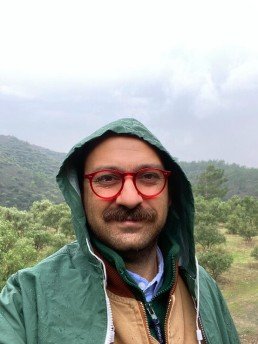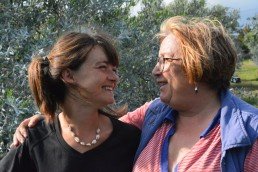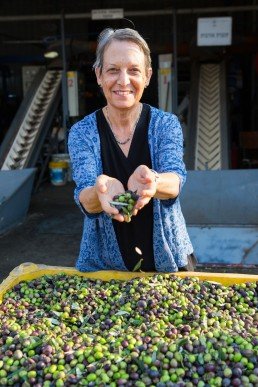Empowering small producers: Artolio Eni CBC Med's impact on the Mediterranean extra virgin olive oil industry
Empowering small producers: Artolio Eni CBC Med's impact on the Mediterranean extra virgin olive oil industry
Introduction to the Mediterranean Extra Virgin Olive Oil Industry
Extra virgin olive oil is one of the most representative products of the Mediterranean diet. Its production and consumption are closely linked to the history, culture and economy of Mediterranean countries. The quality of extra virgin olive oil is fundamental to guaranteeing its healthy and organoleptic properties, and for this reason, the sector is subject to rigorous quality controls and designations of origin.
Currently, the global extra virgin olive oil market is dominated by large companies that can afford the costs of production and distribution, leaving small producers at a disadvantage. The latter often lack the necessary resources to compete, which makes it difficult for them to stay in business and preserve the traditions and production techniques that guarantee product quality.
Challenges facing small-scale producers in the sector
Small producers of extra virgin olive oil face numerous challenges to stay in the market. One of the main problems is the lack of access to adequate financing to invest in technology and improve their production processes. In addition, they tend to have fewer resources to promote their products and create a recognized brand in the national and international market.
Globalization and price competition also represent important challenges for small producers. Access to international markets can be complicated due to trade barriers and transportation and distribution costs. In addition, competition from other extra virgin olive oil producing countries, which can offer lower prices, hinders the profitability of small producers.
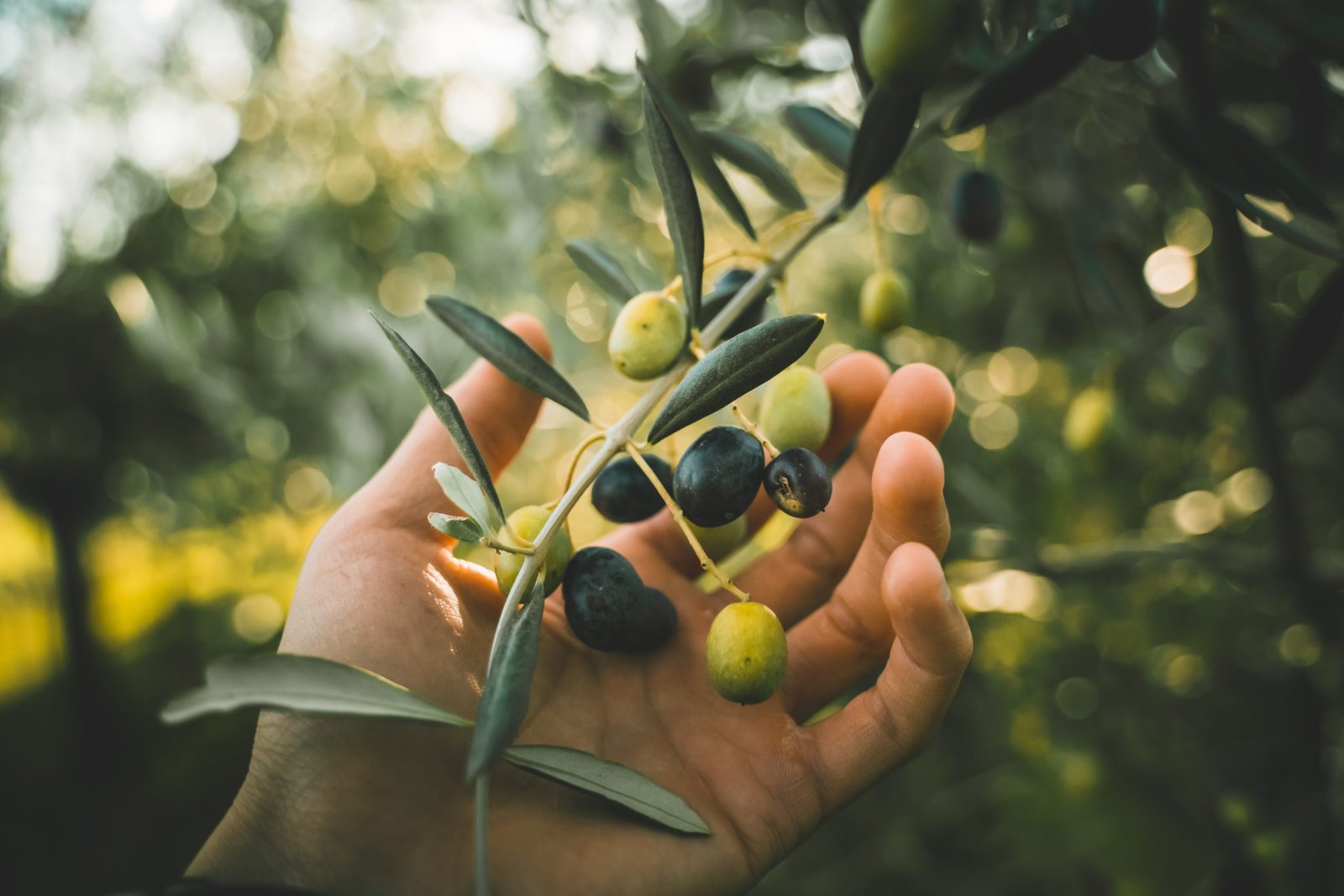 Artolio Eni CBC Med's mission to empower smallholder farmers
Artolio Eni CBC Med's mission to empower smallholder farmers
Artolio Eni CBC Med is a project that seeks to empower small-scale extra virgin olive oil producers in the Mediterranean through the promotion of sustainable practices and the strengthening of their productive and commercial capacities. The main objective of this project is to improve the competitiveness and added value of small-scale producers, while preserving the environment and cultural traditions.
Artolio Eni CBC Med works in collaboration with local and international organizations to develop tools and strategies to facilitate the adoption of sustainable practices in the extra virgin olive oil industry. In addition, the project seeks to facilitate access to financing and international markets for small producers, as well as to promote cooperation among them to share knowledge and resources.
Artolio Eni CBC Med Success Stories
Thanks to Artolio Eni CBC Med's support, numerous small Mediterranean extra virgin olive oil producers have been able to improve their production practices and increase their competitiveness on the market. These success stories demonstrate the potential of this project to transform the industry and generate economic, social and environmental benefits for local communities.
One of the success stories is that of a small producer in Greece who managed to obtain organic certification for his extra virgin olive oil, which allowed him to access new markets and improve his income. Another case is that of a group producers who, thanks to technical and financial support from Artolio Eni CBC Med, were able to modernize their facilities and improve the quality of their product.
Sustainable practices in Mediterranean extra virgin olive oil production
One of the pillars of Artolio Eni CBC Med is the promotion of sustainable practices in the production of extra virgin olive oil. These practices include the use of environmentally friendly agricultural techniques, such as organic farming, the responsible use of water resources and the reduction in the use of chemical products. In addition, the project encourages the adoption of technologies that improve energy efficiency and reduce greenhouse gas emissions.
Sustainability also applies to the management of by-products and waste generated during the production process. Artolio Eni CBC Med promotes the reuse and recycling of these by-products, as well as the creation of new value-added products from them, such as fertilizers or biomass for energy production.
Economic impact of Artolio Eni CBC Med on the industry
Artolio Eni CBC Med's support to small Mediterranean extra virgin olive oil producers has generated a significant economic impact on the industry. By improving the competitiveness and added value of these producers, new jobs have been created and sources of income for local communities have been diversified.
In addition, the strengthening of the productive and commercial capacities of small producers has made it possible to increase exports of extra virgin olive oil from the Mediterranean, thus helping to improve the trade balance of the countries involved in the project.
Social and environmental benefits of support to small producers
Supporting small Mediterranean extra virgin olive oil producers through the Artolio Eni CBC Med project generates significant social and environmental benefits. The promotion of sustainable practices contributes to environmental conservation and the fight against climate change, while preserving the cultural traditions and agricultural heritage of local communities.
In addition, by improving the quality of life and income of small producers, it promotes rural development and helps reduce migration to urban areas. This, in turn, favors social cohesion and the strengthening of community networks.
How consumers can contribute to the empowerment of small producers
Consumers have a key role to play in empowering small Mediterranean extra virgin olive oil producers. By choosing products made by these producers, the customer can support their economic activity and contribute to the preservation of the environment and the cultural heritage associated with the production of extra virgin olive oil.
In addition, consumers can promote the consumption of quality extra virgin olive oil of sustainable origin by disseminating information and supporting initiatives such as Artolio Eni CBC Med. This raises awareness of the importance of preserving quality and sustainability in the extra virgin olive oil industry.
Future outlook for the Mediterranean extra virgin olive oil industry
The future of the Mediterranean extra virgin olive oil industry depends to a large extent on the ability of small producers to meet the challenges posed by the global market. Projects such as Artolio Eni CBC Med are fundamental to guarantee the sustainability and competitiveness of these producers, and to preserve the quality and identity of extra virgin olive oil.
As the demand for healthy and sustainable products continues to increase, Mediterranean extra virgin olive oil is expected to maintain its privileged position in the global market. However, this requires continued investment in strengthening the productive and commercial capacities of small producers, as well as in promoting sustainable practices and technological innovation.
In addition, it is important that governments and international organizations continue to support the development of the Mediterranean extra virgin olive oil industry, ensuring a favorable economic and legal environment for small producers and promoting cooperation between the different actors in the sector.
Conclusions: The lasting impact of Artolio Eni CBC Med.
In conclusion, the Artolio Eni CBC Med project is having a significant impact on the Mediterranean extra virgin olive oil industry by empowering small producers and promoting sustainable practices and capacity building. Through their work, they are generating significant economic, social and environmental benefits for local communities.
However, much remains to be done to ensure the sustainability and competitiveness of the Mediterranean extra virgin olive oil industry in the future. It is necessary to continue supporting small producers and promoting sustainable practices and technological innovation, as well as fostering cooperation among the different actors in the sector.
As consumers, we can also contribute to the empowerment of small Mediterranean extra virgin olive oil producers through our purchasing decisions and the promotion of sustainable practices in the industry. Together, we can ensure a sustainable and prosperous future for this industry that is so important to the Mediterranean economy, culture and environment.
Content created by:
Jesus F. Gordillo
Communication Manager of ARTOLIO ENI CBC MED
Strategic Director of Kellenföl Ad, an agency based in Barcelona. Advisor to companies and public institutions. Professor of marketing and advertising strategies.
Demetris Taliotis, Cypriot beneficiary of ARTOLIO
INTERVIEWS
Demetris Taliotis
"Extra virgin olive oil is not a luxury, or at least it shouldn't be."
When thinking about olive oil production, there is the modern notion of exporting to other countries but, at the very core of olive oil production, there has always been a sense of identity, an underlining that speaks of culture. The local market has always been a fundamental pillar in the sector, as it provides farmers with consumers who are known to them, and consumers with the knowledge that the oil they use for cooking comes from their land. Dimitris Taliotis, ARTOLIO's beneficiary from the Cyprus region, believes in this inherent identity that follows the olive oil tradition and has centered his entire work philosophy around the idea that olive oil is a cultural product, something that must be preserved.

“If you go to a supermarket in the UK, you will find more choices on the shelves than in any supermarket in Cyprus, despite the fact that the UK is not an olive oil producing country. My dream is to see the shelves in Cyprus full of oil made in our land, something that would be inherently ours.” Demetris and its brand, Aparthenasa, sell extra virgin olive oil locally, with the aim of enriching the local Cyprus market. Coming from a non-traditional farming family, Demetris started his working career in the marketing field, but somehow all his projects revolved around the food theme and that is how he discovered his interest in olive oil. After a while, he and his wife decided to train in olive growing and bought an abandoned olive grove to start farming.
 ARTOLIO helped Demetris with his new project by installing a much-needed high-end irrigation system, but if there is one thing he appreciates about this project, it is the farming community that has originated in Cyprus thanks to the involvement in ARTOLIO. “What I do now gives me comfort, and I feel well-supported by my partners. When my orchard burned down last year, they helped me when I needed it most, and I'm grateful for that.”
ARTOLIO helped Demetris with his new project by installing a much-needed high-end irrigation system, but if there is one thing he appreciates about this project, it is the farming community that has originated in Cyprus thanks to the involvement in ARTOLIO. “What I do now gives me comfort, and I feel well-supported by my partners. When my orchard burned down last year, they helped me when I needed it most, and I'm grateful for that.”
Camille Jehl, An inexhaustible source of creativity
INTERVIEWS
Camille Jehl
"When the opportunity arose, we jumped at the chance!"
Monique and Camille Jehl are not afraid of risk and can act as they please, as they did when they bought an abandoned olive grove in 2001. “A friend of mine was selling 7 hectares,” says Monique, “without ever having worked on trees. My husband loved this place, where he came on vacation every other summer since he was a child. So, when the opportunity arose, we jumped at the chance!”
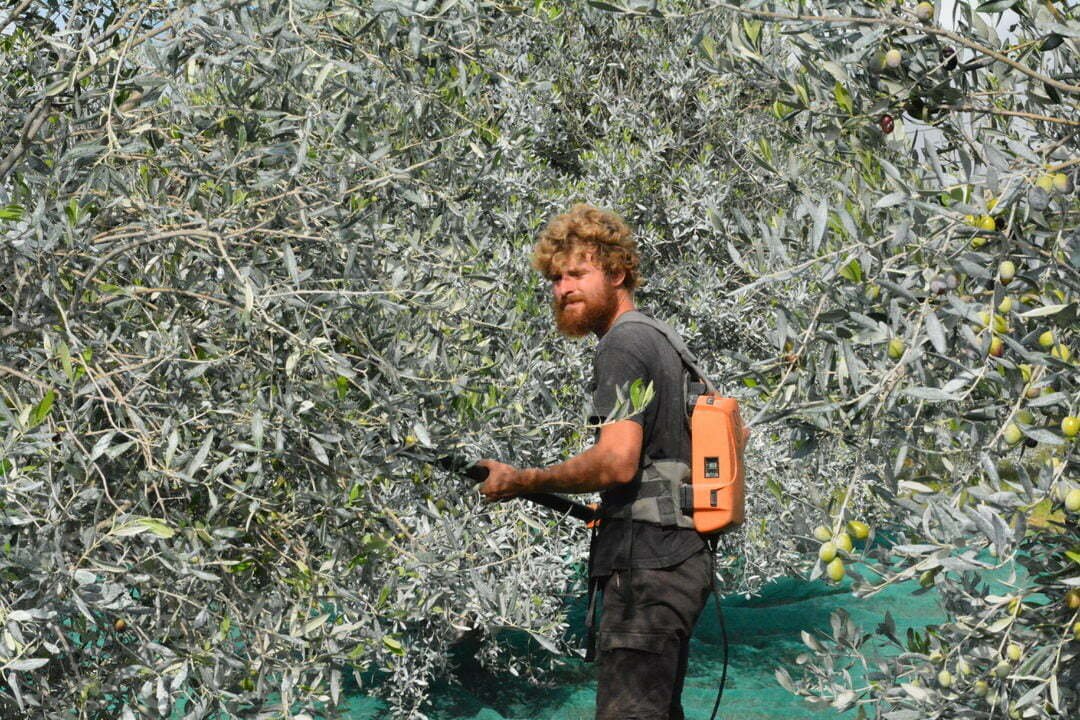 An additional 1200 trees were planted in 2006, resulting in a varied production: a Delicatezza range, fruity and ripe; Verdura and Ardente, fruity and green. The three are directly collected from the tree every year. In 2018, at the age 28, Camille joined the family after finishing her studies, armed with solid knowledge of agricultural practices. Then, they initiated the creation of a 250-head chicken farm. “I wanted to diversify the farm, with a second interest in mind: to prevent and limit the ravages of the olive fruit fly (Bractocera oleae),” explains the young woman. Marc, her partner, takes care of it with white clay treatments, as required by organic farming.
An additional 1200 trees were planted in 2006, resulting in a varied production: a Delicatezza range, fruity and ripe; Verdura and Ardente, fruity and green. The three are directly collected from the tree every year. In 2018, at the age 28, Camille joined the family after finishing her studies, armed with solid knowledge of agricultural practices. Then, they initiated the creation of a 250-head chicken farm. “I wanted to diversify the farm, with a second interest in mind: to prevent and limit the ravages of the olive fruit fly (Bractocera oleae),” explains the young woman. Marc, her partner, takes care of it with white clay treatments, as required by organic farming.
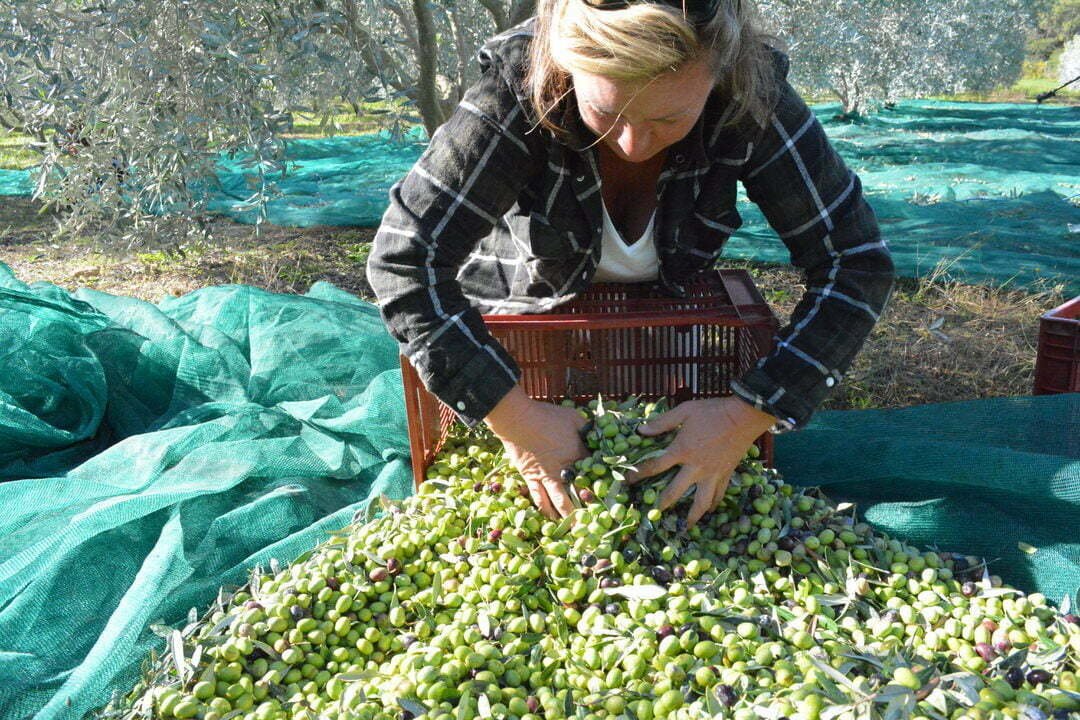 Soon, a new activity will be launched at Domaine des Oliviers de Giuseppone: the “camping on the farm” will welcome amateurs and lovers of working the land.
Soon, a new activity will be launched at Domaine des Oliviers de Giuseppone: the “camping on the farm” will welcome amateurs and lovers of working the land.
Hadas Lahav, Sindianat HaGalil businesswoman
INTERVIEWS
Hadas Lahav
“All our business activity is aimed at supporting women, sustainability, and modernization of the fields”: ARTOLIO beneficiary 'Syndianna of Galilee'
Born in a kibbutz near the Sea of Galilee in northern Israel, Hadas has been working on various agricultural projects since she was very young. She is the CEO and one of the founders of “Sindyanna of Galilee”, a fair trade association of Arab and Jewish women created in 1996. Sindyanna develops sustainable agriculture methods (especially for olive groves), produces and sells high-quality organic olive oil.
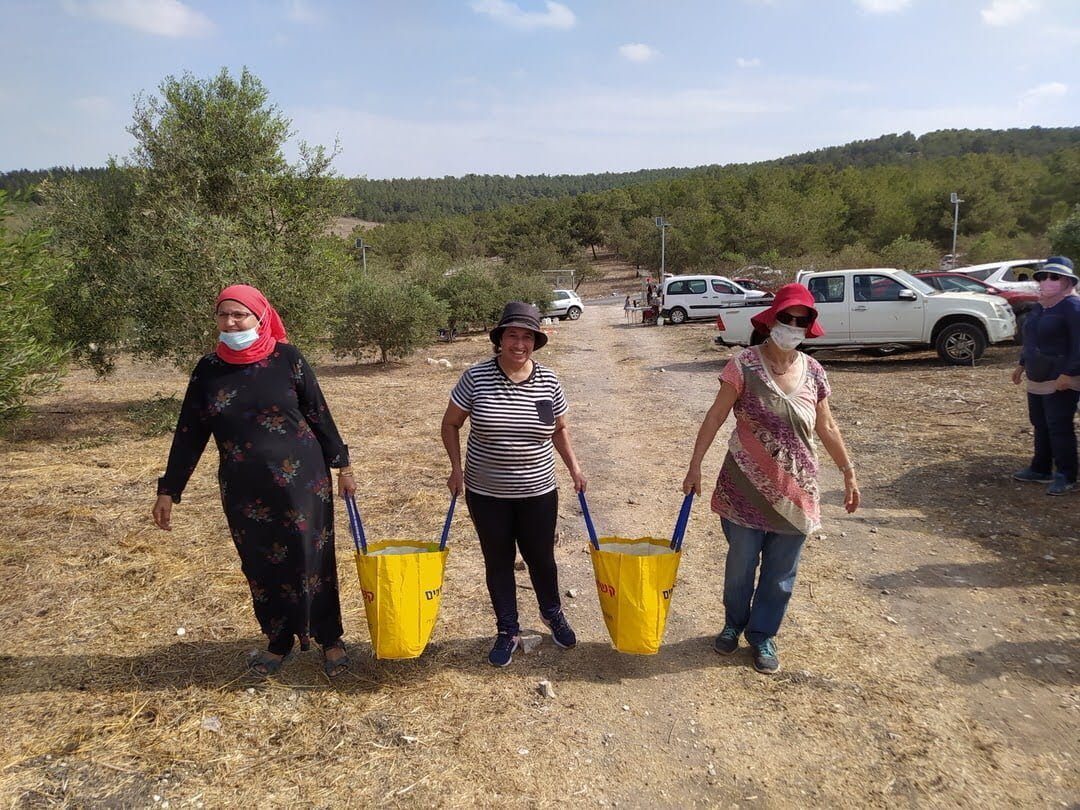
Combining local tradition, modern know-how and excellent olive varieties, her team can produce balanced, premium olive oils that offer distinctive character, satisfying bitterness, tingling spiciness and a unique peppery flavor that lingers on the palate. Her organic olive oils (Extra Peaceful OO) include Barne'a, Coratina and Suri cultivars. As for Sindyanna's house blend (Extra Unified OO), it is composed of oils from their fair trade olive groves. Contains Barne'a, Coratina and Picual varieties.
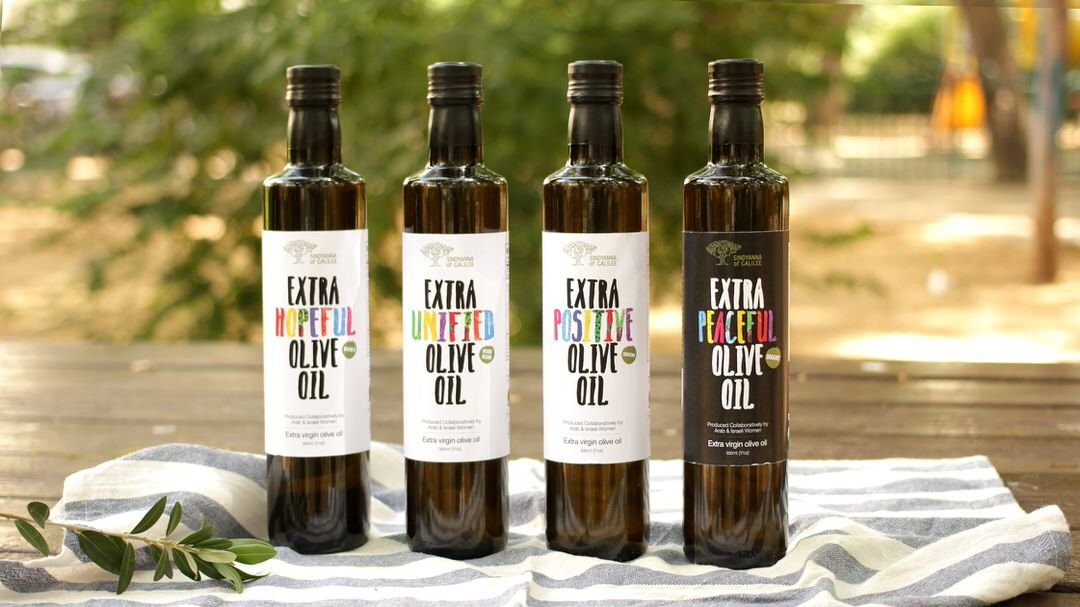 The olives used for her award-winning organic and extra virgin olive oils are grown in olive groves located amidst the hills and valleys of the Galilee in northern Israel. The organic olive groves in the village of Deir Hanna are the first certified by an international organic certifier in the area. The olives are picked from the trees and, within hours of harvesting, are cold pressed and stored in airtight churns to capture their fresh flavor and aroma. Her team stores, packs and sells the olive oil from their organic and fair trade warehouse in Cana of Galilee.
The olives used for her award-winning organic and extra virgin olive oils are grown in olive groves located amidst the hills and valleys of the Galilee in northern Israel. The organic olive groves in the village of Deir Hanna are the first certified by an international organic certifier in the area. The olives are picked from the trees and, within hours of harvesting, are cold pressed and stored in airtight churns to capture their fresh flavor and aroma. Her team stores, packs and sells the olive oil from their organic and fair trade warehouse in Cana of Galilee.
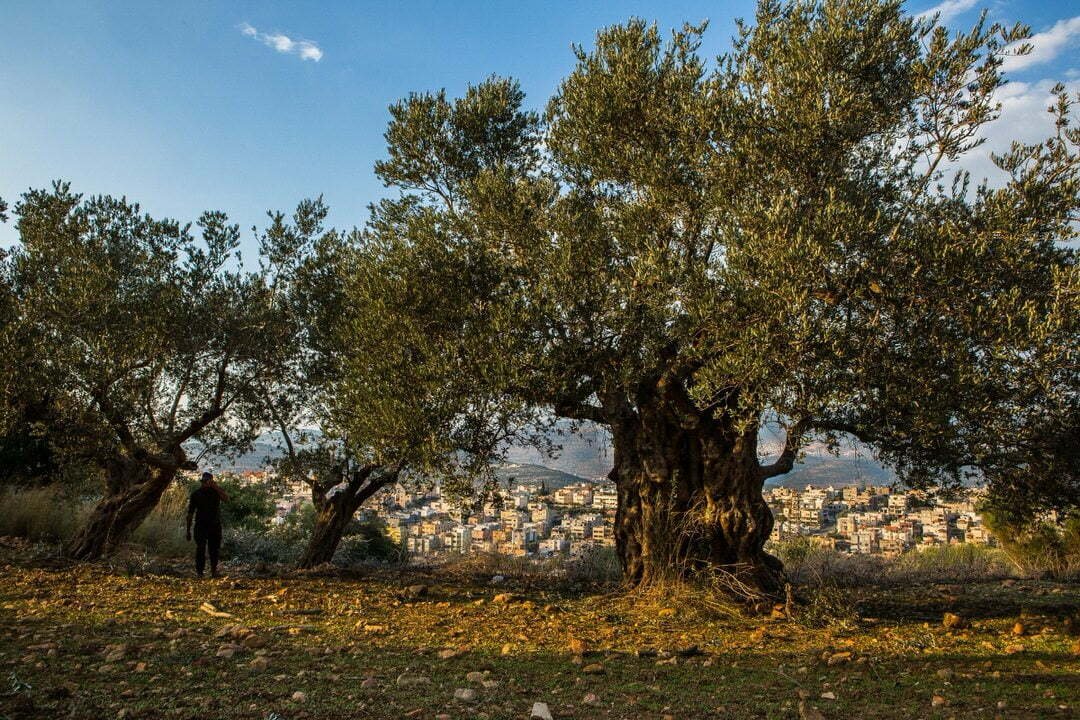 Hadas Lahav participates as a beneficiary of the ARTOLIO project, funded by the European Union under the ENI program.
Hadas Lahav participates as a beneficiary of the ARTOLIO project, funded by the European Union under the ENI program.



